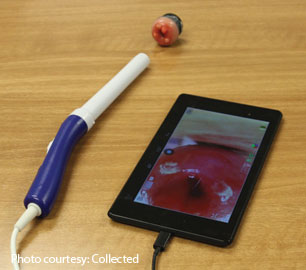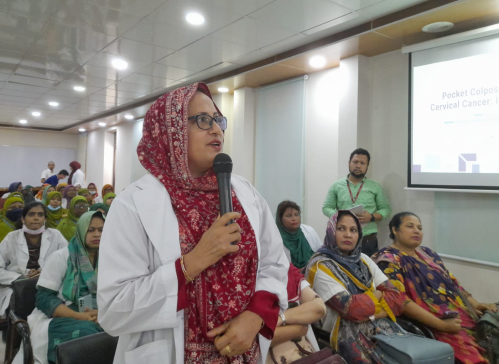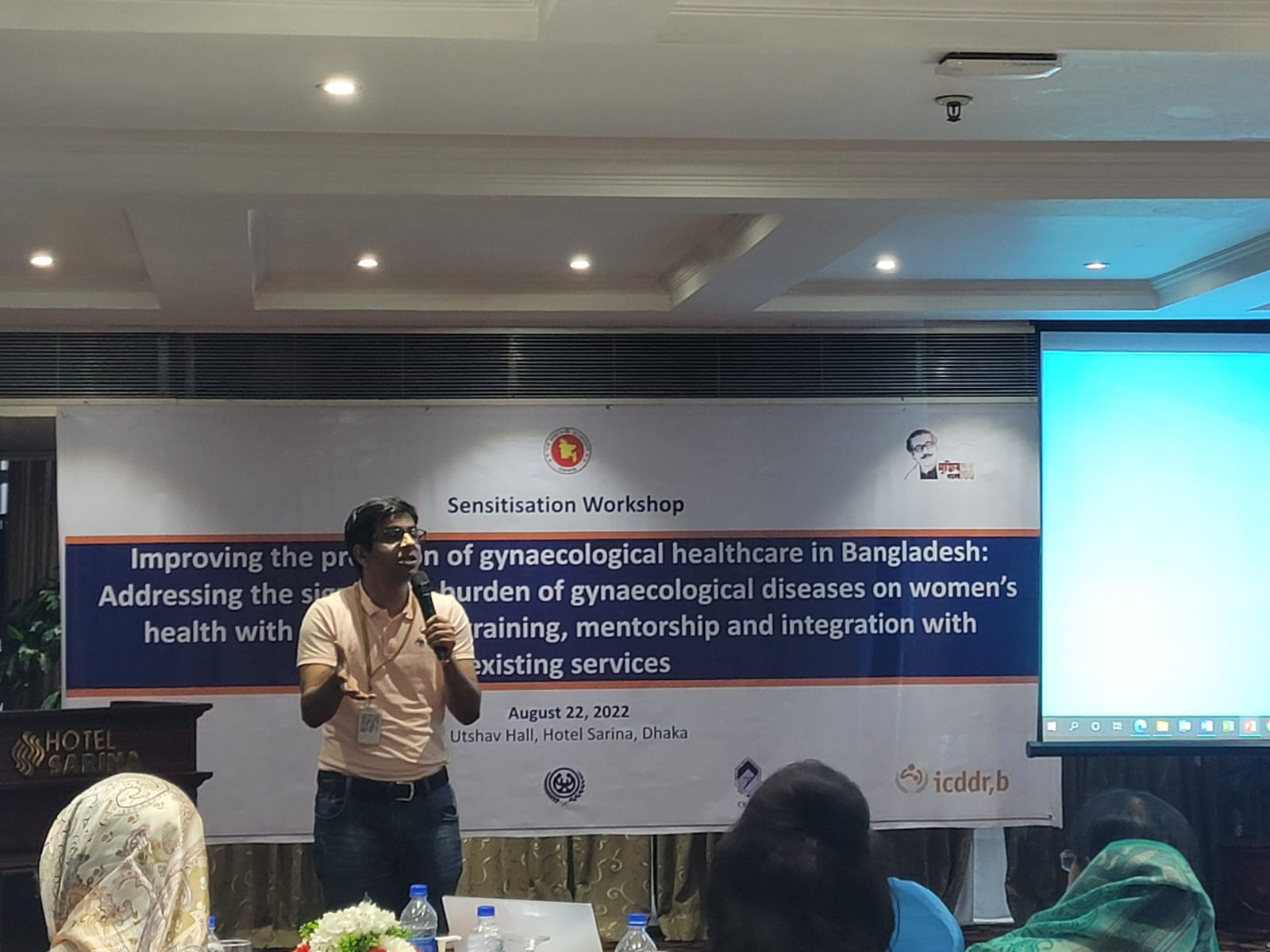Events & Policy Dialogues
AdSEARCH by icddr,b organised the Launching Ceremony of the Pocket Coloscopy held at Mymensingh
Pocket colposcopy for screening of cervical cancer: An implementation research

Study Overview
Short description of study: According to International Agency for Research on Cancer, more than 50 million Bangladeshi women are at risk of developing cervical cancer. If diagnosed at the precursor stage, however, cervical cancer is a condition that can be successfully treated. To achieve the aforementioned goal, Bangladesh has a national cervical cancer control and screening programme utilising visual inspection via acetic acid (VIA). Despite the current efforts, there are certain barriers in terms of human resources capacity, lack of infrastructure for screening, inadequacy of vaccines and inequities in screening and/or vaccination across the country. The WHO guidelines refer to, but does not take account of, changes in digital cervical screening technology. Specifically, there have been significant advances in low cost cervical imaging using Point of Care digital (Pocket) colposcopy with potential diagnostic support using machine learning tools for image classification. Pocket colposcope is much cheaper than standard colposcopes and has similar performance characteristics. There is also the potential for the Pocket colposcope to replace or supplement the standard colposcope in clinical management.
We designed a mixed-methods implementation research study of alternative technologies for the screening, triage, and management of cervical cancer in primary and secondary care settings in Bangladesh. We will screen women using pocket colposcope along with VIA in primary care settings. Images from pocket coloscopy will be classified by study nurse. Both VIA positive and Pocket colposcope positive women will be refereed to district hospital for standard of care conventional colposcopy. Images from pocket colposcopy will be evaluated by OB-GYN specialist and compared with histopathology results. Key informant interviews will be conducted with GoB officials, nurse and doctors. In-depth interviews will be taken from study screened women and their family members.









